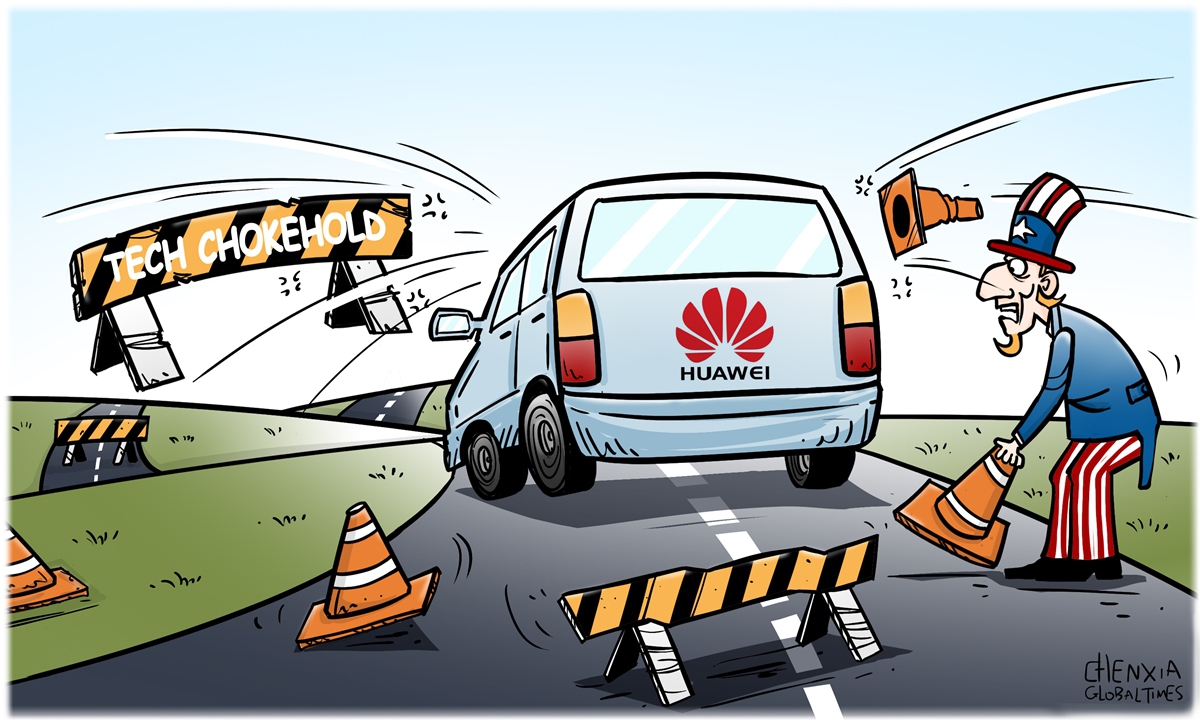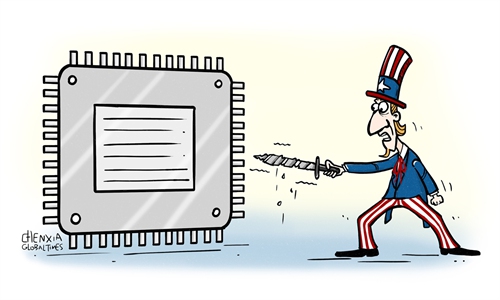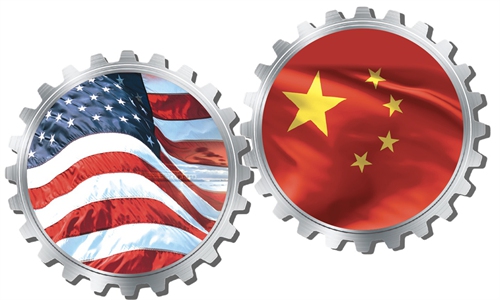
Breaking through barriers. Illustration:Chen Xia/GT
China-US scientific and technological cooperation, which has been one of the cornerstones for the common development of both sides over the past decades, is facing increasingly severe challenges, stemming largely from Washington's drive to build a "small yard, high fence."This worrying trend will affect bilateral economic and trade relations, and it may also hinder the development of global scientific and technological innovation.
A US Senate committee said on Monday that it will hold a hearing on March 6 on a bill that would prohibit federal agencies from having contracts with China's BGI, Wuxi AppTec and other biotechnology companies of concern, Reuters reported.
News of the Senate bill and similar legislation in the House sent shares of several Chinese biotechnology companies tumbling in recent weeks on fears that the Chinese biotechnology sector could become a new target for the US strategy of containing China's scientific and technological development.
While the bill itself may still have a long way to go before it becomes law, its advance in Congress suggests a disturbing trend, under which US efforts to curb China's access to advanced technology are expanding into more areas.
Since US politicians began to identify scientific and technological areas as the frontiers of competition with China, the US has resorted to every means possible to curb the technological development of China.
These efforts have included politicizing technological cooperation, building a "small yard, high fence" to suppress China's semiconductor sector, and playing up the "China threat" theory in the biotechnology and other high-tech industries.
However, the growing US obsession with technological blockades may actually be a manifestation of lack of a confidence in its own development, which is why it has opted for blockades and sanctions to maintain its technological advantages and hegemony.
But the question is, excepting those politicians, do the scientific and business communities really believe that seeking a "decoupling" strategy in the technological field is truly beneficial for the US?
Over the past four decades, the China-US Science and Technology Agreement, which was signed in 1979 and renewed every five years or so in most cases, has witnessed the mutually beneficial results of scientific and technological cooperation.
Extensive practice has also confirmed that the benefits brought by the cooperation to both countries, and even to the world, have always been enormous. For instance, cooperation in clean energy and climate change has yielded positive and tangible results, which is crucial for global efforts to combat climate change.
Neither the agreement nor its renewal is a unilateral favor granted by the US to China, but rather a framework of equal cooperation. It is true that there are biased critics who claim that China is the sole beneficiary of bilateral scientific and technological cooperation, and the US is at a disadvantage. But both countries have benefited from technology exchanges and cooperation in terms of sharing research data, experience and expertise.
With the development of China's economy, it is natural to see its technological development also make continuous progress. Rational thinkers can easily see how progress could provide more opportunities for further scientific and technological cooperation between China and the US.
Failure to acknowledge that the US has also gained from technological cooperation with China, and resorting to unilateral means to pursue technological blockades will hinder the development of both countries and cast a shadow over global technological development. Technological progress in China and the US is highly significant in addressing some common challenges facing the world.



